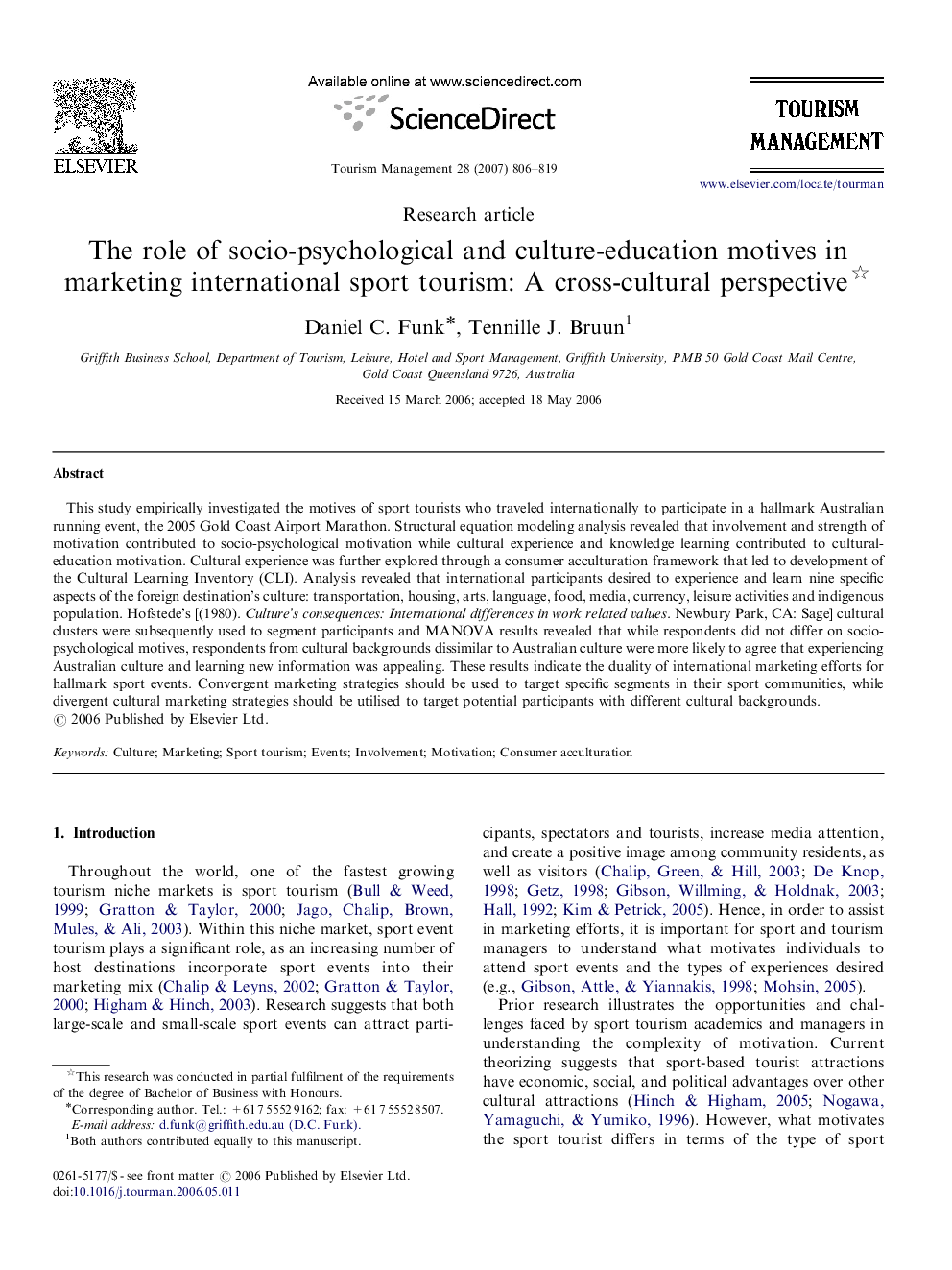| Article ID | Journal | Published Year | Pages | File Type |
|---|---|---|---|---|
| 1013339 | Tourism Management | 2007 | 14 Pages |
This study empirically investigated the motives of sport tourists who traveled internationally to participate in a hallmark Australian running event, the 2005 Gold Coast Airport Marathon. Structural equation modeling analysis revealed that involvement and strength of motivation contributed to socio-psychological motivation while cultural experience and knowledge learning contributed to cultural-education motivation. Cultural experience was further explored through a consumer acculturation framework that led to development of the Cultural Learning Inventory (CLI). Analysis revealed that international participants desired to experience and learn nine specific aspects of the foreign destination's culture: transportation, housing, arts, language, food, media, currency, leisure activities and indigenous population. Hofstede's [(1980). Culture's consequences: International differences in work related values. Newbury Park, CA: Sage] cultural clusters were subsequently used to segment participants and MANOVA results revealed that while respondents did not differ on socio-psychological motives, respondents from cultural backgrounds dissimilar to Australian culture were more likely to agree that experiencing Australian culture and learning new information was appealing. These results indicate the duality of international marketing efforts for hallmark sport events. Convergent marketing strategies should be used to target specific segments in their sport communities, while divergent cultural marketing strategies should be utilised to target potential participants with different cultural backgrounds.
